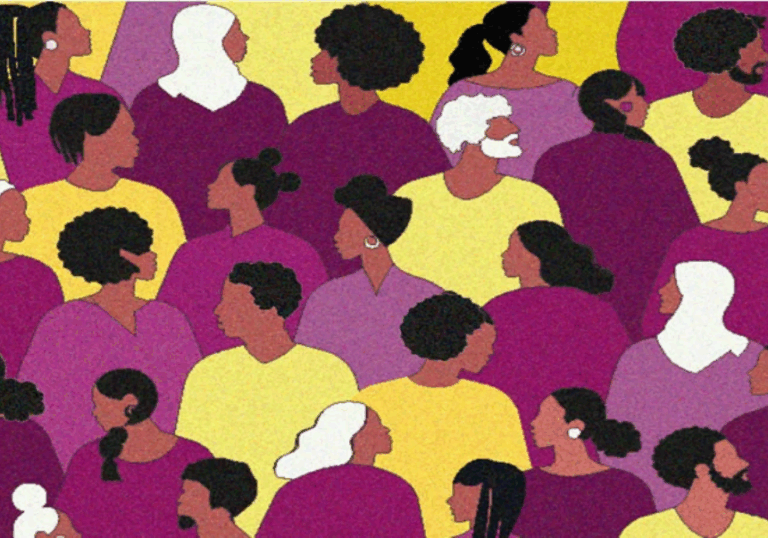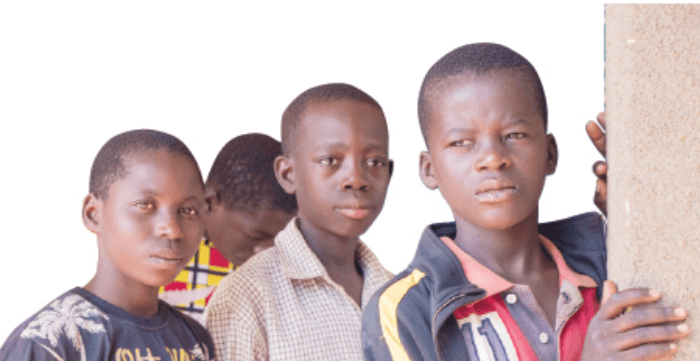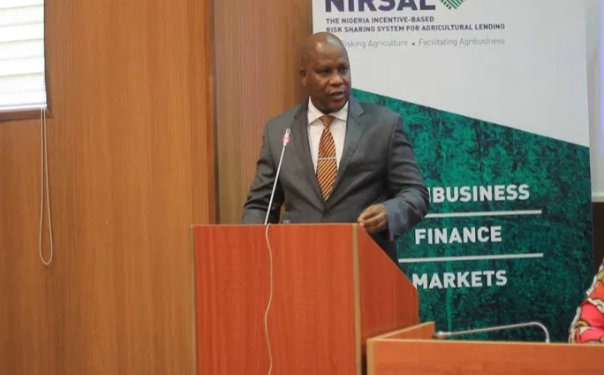The coronavirus also infested Nigeria’s judiciary. And common men distressed under lockdown are the worst affected, writes Gbenga Ogundare
The judiciary is the last hope of the common man. Anyone could take that to the temple of justice—until March 24.
Since then, Covid-19 has been changing many aspects of life, including justice administration and dispensation. As most part of the world remains on lockdown, all businesses, government or private, have wound down in the effort to contain the pandemic.
So in Nigeria, also on lockdown, that hope is ebbing away at the behest of social distancing.
In a high court sitting in Lagos, a presiding justice now sits sheathed in gloves and a face mask. His courtroom is empty. It has to be. At the door are a heat detector and a doctor to screen counsels—defendants’ and plaintiffs’—alone. And the lawyers, maybe five at a time, having baptized their hands in sanitizers, walk in, sit down, walk up, or stand up five feet apart, every step of the way, all of them shrouded in masks and gloves. The court clerk, too, stands five feet away each time they approach their lordship. There are no witnesses. No sympathizers. No family members. Five of such session come up in a day.
That’s the scenario now in a typical courtroom—since Nigeria’s Chief Justice Tanko Mohammad ordered a partial shutdown of the judiciary on March 24. He directed that all court sittings be suspended for an initial period of two weeks, “except in matters that are urgent, essential or time-bound according to our extant laws”.
As it turns out, such matters are largely about prosecution of breaches of lockdown regulations, continuation of hearing of election matters, and cases of long-drawn-out legal battles.
In other words, dispensing justice in other cases—of human rights atrocities, criminal abuse like domestic violence, rape, and extra-judicial killing during the lockdown—could wait. Or be delayed.
Ordinarily, in Nigeria’s justice system, speed is an anathema. Rape, for instance, takes a while to prosecute and secure conviction. Murder, too. Criminal cases are mostly prolonged and delayed.
Rape convictions at the Lagos High court, for instance, are painfully marginal placed side by side the huge tome of charges waiting in the dockets of their Lordship, investigation shows.
“It takes up to two or three years on the average, and that’s even fast because of the Sexual Violence Court,’ Titilola Vivour-Adeniyi disclosed.
In 2017, according to Babajide Martins, Lagos State Deputy Director of Public Prosecution, the state only managed to secure just three convictions out of the 1044 cases recorded that year. It was another 15 meagre convictions the following year, which is again less than two percent of the 2,356 rape cases recorded in 2018.
They have to be. The system permits it. “Criminal trials are often delayed especially in cases where persons standing trial have the means to engage the services of legal practitioners who could exploit the gaps in law to the advantage of their clients especially in delaying proceedings,” said Justice Muntar Abimbola, the Chief Judge of Oyo state last year at a workshop on the implementation of the administration of Criminal Justice Act (ACJA) 2015 and Administration of Criminal Justice (ACJ) Laws.
Former CJN Walter Onnoghen observed how rampant and harmful the time-killing tactic was when he was in office. “These delays result in the unfortunate disruption of due process,” he noted in 2017. The Supreme Court, then, directed that any prosecution or defense counsel using such black hat tactics should be dealt with. How strongly the order held during peace time is at issue.
But, certainly, the directive can’t stand now; the system that drives it is still cranking. Covid-19 has only made it worse—having upended life as we know it. The big wigs like Justice Tanko deny this, though. Now and then, they flaunt some judicial reforms which only sound good to the administration.
Days ago, Justice Minister Abubakar Malami, talking about justice during this emergency, sang the same riff as Tanko. “Speedy dispensation of justice is a cardinal principle of the Justice Sector Reform of the present administration, hence, time-bound cases are treated with dispatch and accorded the required attention,” Malami said in a press statement issued after the first two weeks of lockdown.
And all that followed at the Supreme Court and across many of the nation’s courts, since the initial order, proved that rights abuse cases, for instance, will have no mention while the emergency lasts. Only election suits, Supreme Court appeals, legal crackers among the well-moneyed Nigerians got the speedy dispensation.
It was the Supreme Court that set the ball rolling early on in the lockdown.
The apex court decided to deliver judgement in the application filed by the Abdullaziz Yari faction of the APC—on the review of the court’s governorship election. The court on March 17 reserved ruling on the APC application for the review of its judgment nullifying the party’s victories in the general election held in 2019 in Zamfara State.
By March 28, the court delivered the judgement. The law says appeals at that level shouldn’t exceed 60 days. So the case had to be settled for fear of uncertainty. The lockdown might last as long as a piece of string.
The court also decided on the N450-million fraud charges the EFCC filed against a former governorship candidate of the defunct Action Congress of Nigeria (ACN) in Kwara, Mohammed Dele Belgore. He started the legal battle a couple of years ago, and was handed an unfavorable judgment he appealed in 2018.
Similar proceedings took place at the lower courts, too. A federal high court presided over by Justice Mohammed Liman in Lagos did a quick one last week: granting of a post-conviction bail to a former Abia State director of finance and account. Jones Udeogu is an ex-con serving 10 years for a N7.1 billion corruption charge alongside former Governor Orji Uzor Kalu.
Udeogu’s lawyers claimed their client was being ravaged by cancer and tuberculosis in jail, and he was going in for surgery. The judgement came in good time because the prison where Udeogu was had no facilities to treat those terminal sicknesses.
Justice Liman also heard an ex-parte application by the EFCC seeking the forfeiture of N293million, six parcels of land and 30,000 MTN shares belonging to Maj.-Gen Emmanuel Atewe, a former Commander of the military Joint Task Force, Operation Pulo Shield, in the Niger Delta.
The justice granted the prayers and ordered temporary forfeiture to be published in a national newspaper. He adjourned till April 20 for anyone interested in the assets to object.
Other cases involving politically exposed persons keep coming up in courts.
But on the rights violation side—the side where common Nigerians stand and hope for justice—there’s not much stirring in the court. Not that people’s rights are not trampled on by fellow citizens and governments; there is just no serious action or space for redress.
According to the National Human Rights Commission, the nation’s security forces killed more Nigerians than the virus did in the early days of the lockdown. NHRC’s Executive Secretary Tony Ojukwu said while coronavirus killed 12 people in Nigeria then, according to data from the Nigeria Centre for Disease Control (NCDC), security operatives—task forces, army, police, and prison security—dispatched 18 people. The commission said it also documented 105 complaints of human rights violations mostly in Lagos and Abuja within the first 14 days. And all of these happened in the course of enforcing the lockdown (government) regulations.
There are other reports of criminal acts that deserve attention in the temple of justice even in lockdown. An NGO, the Women At Risk International Foundation and Lagos Domestic and Sexual Violence Response Team also confirmed a spike (64 percent) in domestic violence during the first stretch of the lockdown.
Many of the abusers and rights violators have not been chivvied to court yet. And if they have, not many Nigerians care. The criminal justice system will ultimately ensure the case lasts long enough for the victims to lose hope for justice. The lockdown only makes the whole thing heavy going early enough.
Since March 24, the lockdown has been extended twice in the two states and FCT which the federal government first quarantined. Other governors have been slamming it on, for a whole month and weeks.
What that means: for as long as Covid-19 virus disrupts life as it is now, the sanctum of Nigeria’s courtroom will be able to dispense justice to only the rich the lordships allow in. The common man could wait. Or despair.
This report was facilitated by the Wole Soyinka Centre for Investigative Journalism (WSCIJ) under its COVID-19 Reality Check project.



